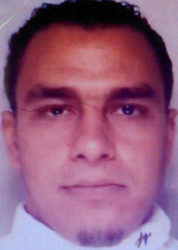NICE, France, (Reuters) – French authorities were trying to determine yesterday whether a Tunisian who killed at least 84 people by ploughing a truck into Bastille Day crowds had acted alone or with accomplices, but said the attack bore the hallmarks of Islamist militants.
Thursday night’s attack in the Riviera city of Nice plunged France into new grief and fear just eight months after gunmen killed 130 people in Paris. Those attacks, and one in Brussels four months ago, shocked Western Europe, already anxious over security challenges from mass immigration, open borders and pockets of Islamist radicalism.

The truck zigzagged along the city’s seafront Promenade des Anglais as a fireworks display marking the French national day ended.
It careered into families and friends listening to an orchestra or strolling above the Mediterranean beach towards the century-old grand Hotel Negresco.
At least 10 children were among the dead. Of the scores of injured, 25 were on life support, authorities said on Friday.
Witness Franck Sidoli said he had watched people mown down before the truck finally stopped just five metres away from him.
“A woman was there, she lost her son. Her son was on the ground, bleeding,” he told Reuters at the scene.
The driver, 31-year-old Mohamed Lahouaiej Bouhlel, was shot dead by officers at the scene. He was known to police for petty crimes but was not on a watch list of suspected militants.
He had one criminal conviction, for road rage, and was sentenced to probation three months ago for throwing a wooden pallet at another driver.
The investigation “will try to determine whether he benefited from accomplices,” Paris prosecutor Francois Molins said. “It will also try to find out whether Mohamed Laouaiej Bouhlel had ties to Islamist terrorist organisations.”
“Although yesterday’s attack has not been claimed, this sort of thing fits in perfectly with calls for murder from such terrorist organisations,” Molins added.
Bouhlel’s ex-wife was in police custody, Molins said.
He had three children. Police found one pistol and various fake weapons in his truck.
French Prime Minister Manuel Valls told the evening news that Bouhlel was “one way or another” linked to radical Islam. “Yes, it is a terrorist act and we shall see what links there are with terrorist organisations.”
Yet despite numerous French officials from President Francois Hollande down describing it as a terrorist attack, by nightfall on Friday officials still had not disclosed any direct evidence linking Bouhlel with extremists.
Interior Minister Bernard Cazeneuve, asked if he could confirm the attacker’s motives were linked to jihadism, said: “No. … We have an individual who was not known to intelligence services for activities linked to jihadism.”
A U.S. official familiar with Washington’s assessment said the attack was thought to have been carried out by a “lone wolf” inspired but not directed by Islamic State.
The former top terrorism investigator for the French judicial system said that while the attack fits the profile of the kind undertaken by militant groups, the available evidence suggests the attacker had no evident connection with militant organizations or ideology.
Jean-Louis Bruguiere, formerly the top Paris-based investigative magistrate handling terrorism-related cases, told Reuters no French or European intelligence or security agency had any trace on the suspect and no evidence has surfaced to connect him to any militant group or other suspects or even to casual contact with militant literature or propaganda.
He said so far there is no evidence Bouhlel had any association with any religious group or faction but that there was evidence he was estranged from his family and going through some kind of divorce.





